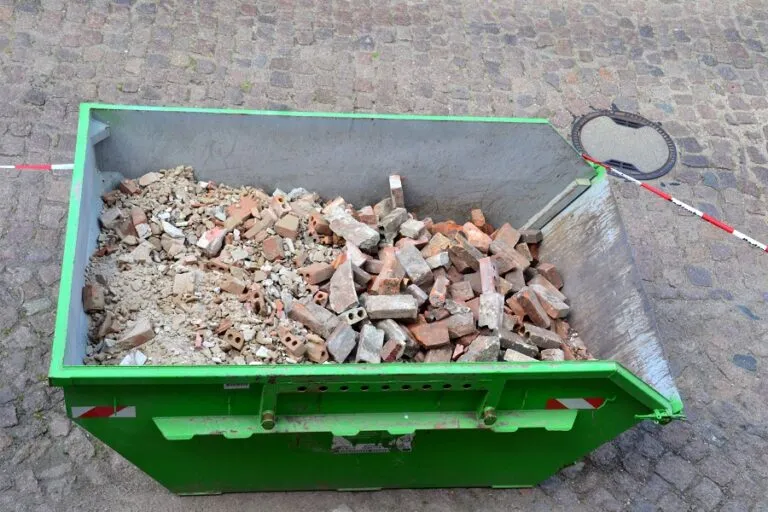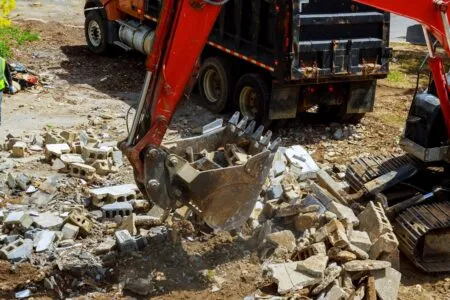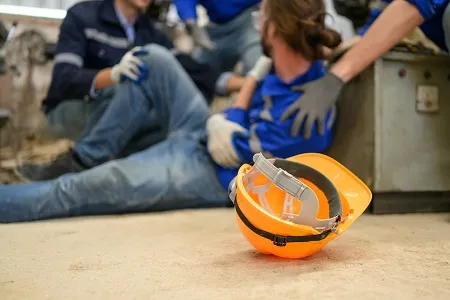Waste disposal, especially for commercial and industrial entities, is a critical issue in Australia. The country is committed to sustainable and environmentally friendly practices, and as such, businesses are expected to adhere to strict regulations regarding waste management. This article explores a variety of lawful methods for disposing of commercial and industrial waste, highlighting their benefits and implementation processes, which should be incorporated into your staff online induction training.
1. Recycling
Recycling is one of the most encouraged waste disposal methods in Australia. Many materials such as paper, glass, metals, concrete and certain plastics can be recycled. Businesses are encouraged to segregate waste at the source to facilitate easy recycling. Commercial recycling services are available across Australia, offering collection and processing of recyclable materials. Implementing a robust recycling program not only complies with local regulations but also enhances a company’s reputation as an environmentally conscious entity.
2. Composting and Organic Waste Treatment
Organic waste from food products, garden and park waste, and timber can be composted or treated through other organic waste treatment methods. This not only diverts waste from landfills but also creates valuable products like compost and biogas. In Australia, there are industrial composting facilities that handle large volumes of organic waste, providing an effective disposal solution for businesses in the hospitality and retail sectors. Concrete and metals are also accepted at no charge but landscaping business might have to pay to dispose of garden waste.
3. Hazardous Waste Management
Special consideration is needed for hazardous waste, which includes chemicals, e-waste, and medical waste. Australian laws require businesses to handle hazardous waste through licensed contractors who can safely collect, treat, and dispose of such materials. This ensures that hazardous substances are managed without posing risks to public health or the environment. Safe handling and disposal of hazardous waste are paramount, with strict penalties for non-compliance.

4. Waste to Energy
Waste to Energy (WtE) is an innovative and sustainable approach to waste management. It involves converting waste materials into energy, such as electricity, heat, or fuel through various processes including combustion, gasification, and anaerobic digestion. Australia has seen a growing interest in WtE facilities, offering an alternative to landfill disposal for non-recyclable and residual waste.
5. E-Waste Recycling
With the rapid advancement in technology, electronic waste (e-waste) is becoming more common. E-waste includes discarded electronic appliances and devices which contain materials that can be hazardous if not properly disposed of. Low product quality is to blame for an increased levels in appliance waste. Australia has specific e-waste recycling programs aimed at recovering valuable materials and preventing harmful substances from entering the environment. Businesses are encouraged to participate in these programs by disposing of their e-waste through designated collection points or recycling services.
6. Secure Destruction
For confidential or sensitive materials, such as documents, prototypes or products, secure destruction services provide a lawful disposal method. These services ensure that materials are destroyed in a secure and confidential manner, with certificates of destruction often provided for record-keeping. This is particularly important for businesses dealing with sensitive information or intellectual property.
7. Landfill
Although less favored due to environmental concerns, landfill disposal is still a lawful method for waste that cannot be recycled, composted, or otherwise treated. In Australia, landfills are strictly regulated to minimize their environmental impact. This includes measures such as lining to prevent leachate contamination, gas capture systems, and ongoing monitoring and management.
Implementation Challenges and Solutions
Implementing effective waste disposal strategies can pose challenges, including costs, logistics and compliance with regulations. However, businesses can overcome these challenges by:
- Conducting waste audits to understand waste streams and volumes.
- Engaging with professional waste management services that offer comprehensive solutions tailored to specific needs.
- Investing in employee education and training to ensure proper segregation and handling of waste.
- Exploring government incentives or programs that support sustainable waste management practices.
Lawfully disposing of commercial and industrial waste in Australia requires adherence to regulations and a commitment to sustainable practices. By embracing recycling, organic waste treatment, hazardous waste management, Waste to Energy technologies, e-waste recycling, secure destruction and responsible landfill use, businesses can keep their waste manegement costs at bay. Overcoming implementation challenges through careful planning, education (online inductions) and collaboration with waste management professionals can ensure that companies not only comply with regulations but also contribute positively to their business in a variety of ways.



